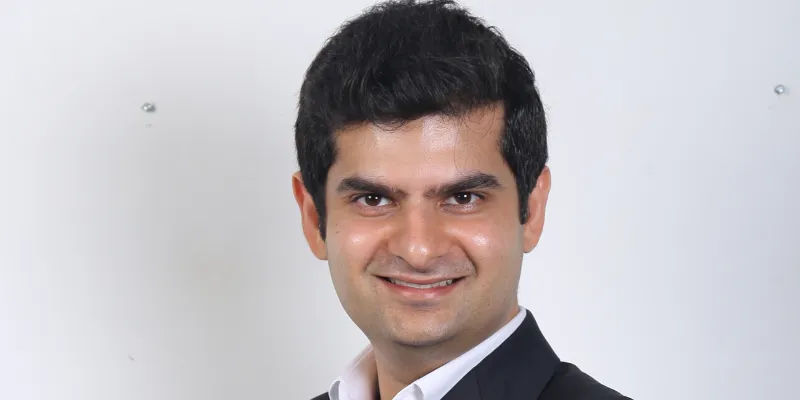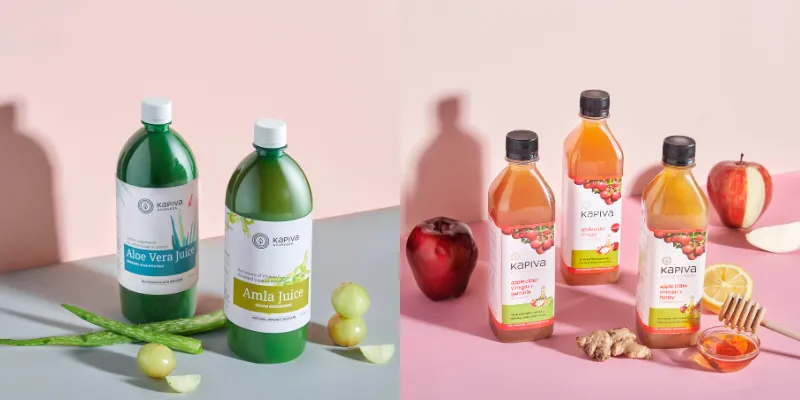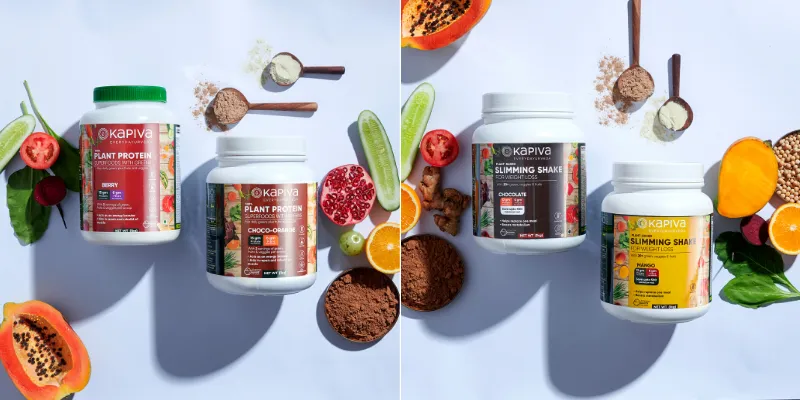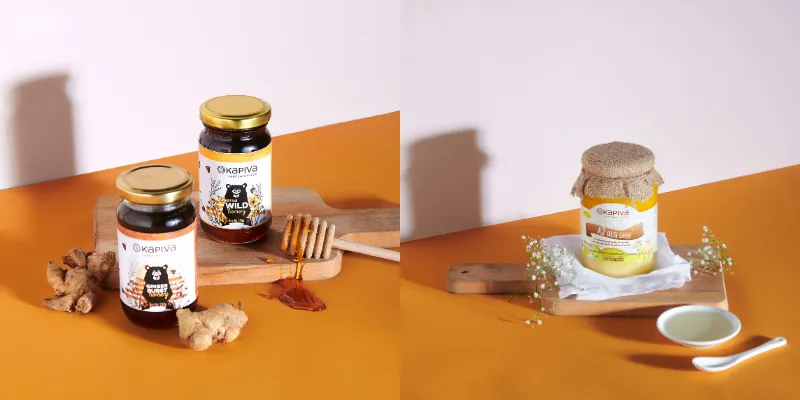How this entrepreneur is eyeing Rs 100 Cr revenue with healthy food supplement business
Leveraging the legacy of 103-year-old Ayurvedic company Baidyanath, Ameve Sharma founded Kapiva to bring functional foods to consumers among a dearth of healthy eating habits. The company is eyeing Rs 100 Cr turnover.

Ameve Sharma, Founder, Kapiva
Taking a balanced diet helps us get all the essential nutrients. However, with our busy day-to-day schedule, we often fail to consume a proper diet, which eventually leads to various kinds of deficiency.
Realising these changes in food consumption patterns, Ameve Sharma thought to make the ancient Indian life science an integral part of day-to-day life and create a diversified Ayurvedic product portfolio. He says,
“Nutrients enter our body through food. However, our food these days has lower-yielding nutritional values. The type of food we eat and the challenges of a healthy lifestyle have changed significantly in recent years. And, so I thought to bring in selectively sourced, natural functional foods through Kapiva.”

Juices and apple cider vinegar by Kapiva
Ameve, who is an MBA graduate from INSEAD and a third-generation entrepreneur of 103-year-old Baidyanath (one of India’s most respected companies in Ayurvedic products, founded in 1917) started up his venture, Kapiva Ayurveda, in 2016 along with Shrey Badhani in Mumbai.
Edited excerpts from the interview:
SMBStory [SMBS]: How did you start Kapiva Ayurveda?
Ameve Sharma [AS]: There is an old saying in Ayurveda: ‘Being healthy is not the absence of illness, it’s the presence of vitality.’ In the modern world, our eating habits have changed drastically and there is a dire need to consume healthy food besides getting healthier substitutes for cooking.
This realisation was the inspiration for me to take the entrepreneurial plunge and launch Kapiva in 2016.
Kapiva is a functional foods brand focussed on bringing selectively sourced, natural foods to Indian consumers. Backed by the iconic Baidyanath group, we help bring the wisdom of India’s ancient food traditions to modern-day consumers.
With Kapiva, we have enabled people to enhance their food quality, especially its nutritional profile. The main product lines are herbal juices, plant nutrition, and staples such as ghee, honey, oils, and teas.
To set up Kapiva, I joined hands with Shrey Badhani, a Cambridge management graduate. He worked with Bain Capital, one of the multi-asset alternative investment firms in the world, looking after private equity investments in India and Southeast Asia.
Initially, Kapiva was started as a chain of Ayurvedic clinics. However, soon we realised that there is more scope in the FMCG category, and we switched our business model.

Kapiva's plant protein and slimming shake
SMBS: How are you carrying forward the legacy of Baidyanath through Kapiva?
AS: Kapiva has a portfolio of more than 40 functional food products such as herbal juices, A2 ghee, honey, oils, plant nutrition, teas, etc. We aim to provide 360-degree support to consumers looking for better quality food products by maintaining a quality supply chain from Baidyanath.
Kapiva products are manufactured in Baidyanath’s third-party manufacturing facilities spread across Delhi, Bengaluru, and Jodhpur.
Kapiva gives the consumer access to a wide range of products to choose from, based on their interest and dietary preferences. Our strength lies in our sourcing. We make sure we source the right ingredients from selective locations. Due to my background in Ayurveda, I have been able to access some great sources that provide the best-quality ingredients. The result — there is a unique sourcing and manufacturing story for each of Kapiva’s products. The products are sourced from their origin; for instance, for the amla juice, the amlas are sourced from Pratapgarh in Uttar Pradesh. They are ripe when plucked and are cold-pressed to retain the nutrients.
For the aloe vera juice, the aloe is sourced from Rajasthan and is known as ‘Thar aloe’. The aloe vera is juiced within four hours of cutting the leaves since its nutritional profile decreases with time. There are utmost precautions taken while extracting wheatgrass juice. Wheatgrass is grown in a moist climate; however, it has to be ensured that it is cut on the eighth day of the cycle when the chlorophyll content is the highest.
Similarly, for A2 ghee, we only use A2 milk which is taken from non-genetically modified desi cows; we source wild honey from dense forests. We also have organic jaggery as a substitute of sugar and a lot more.
You see, all these things are not written anywhere; it is transferred to us from our ancestors who did years of research in Ayurveda.
We have a team of 50 Ayurvedic doctors and a strong QC team that does the R&D for Baidyanath and Kapiva products.
SMBS: Where are Kapiva’s products available?
AS: We are pursuing an omnichannel strategy and are present in 4000+ retail stores across the country and in modern trade through Godrej Nature’s Basket, Reliance, etc.
Our products are available across all major online platforms such as Amazon, Flipkart, Big Basket, and others. Besides focussing extensively on other ecommerce portals, we have our own direct-to-consumer channel in the form of our website.

A2 ghee and wild honey by Kapiva
SMBS: Did you face any challenge when you entered the market? Who are the competing brands?
AS: Kapiva initially started off as a chain of Ayurvedic clinics through which high-quality products were sold. Pivoting from that clinic model to the current FMCG model was a challenge, and the challenge was overcome successfully. Currently, expanding distribution through all channels is a challenge which we are working on.
Talking about the competitive brands, there are various big brands in the same category with over-Rs 500 crore businesses. We strongly focus on the quality and on the places we source materials from. We can’t compete with nature as there is a limit in supply from nature, and we are stern about maintaining the quality.
We are expecting a turnover of Rs 100 crores by 2021.
SMBS: What are your future prospects?
AS: The Indian food sector was worth $193 billion in 2016 and is projected to cross $540 billion by 2020. The market has been growing at a rate of 12 percent annually. And, just one percent of the entire food market is functional. And, we see a great scope of expansion for Kapiva in the Indian food market.
We are planning to increase our distribution footprint and launch new food categories. We are also working on increasing the traction on our website.
(Edited by Athirupa Geetha Manichandar)









